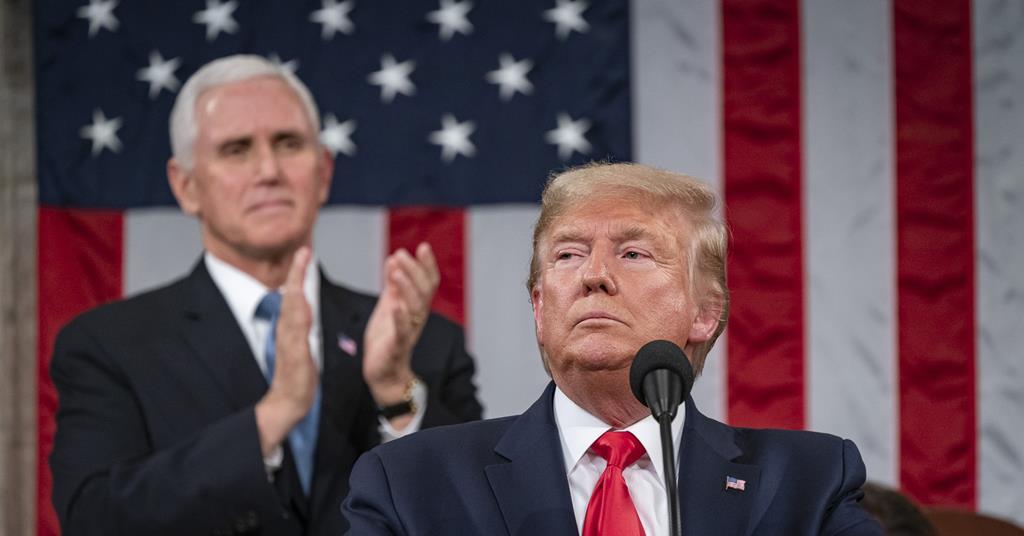





As the U.S. presidential election on November 5, 2024, approaches, the potential policies of candidates Kamala Harris and Donald Trump are poised to significantly impact both the airlines and aerospace sectors as well as the energy landscape. Analysts suggest that a Harris presidency would likely continue the Biden administration's support for Ukraine and promote sustainable aviation fuel (SAF) initiatives, which are critical for reducing the aviation industry's carbon footprint [fa9cd38d]. In contrast, Trump, who is currently facing 34 felony convictions, has indicated he may impose tariffs as high as 60% on Chinese imports and 10-20% on other foreign goods, which could disrupt supply chains and affect the availability of raw materials essential for aerospace manufacturing [dc00cdca].
In a potential Trump administration, there are indications that Russian airspace might reopen, which could significantly benefit global aviation. Ending the ongoing conflicts, particularly the Russia-Ukraine war, is a priority for Trump, who has promised to resolve the situation within 24 hours of taking office [b796c5af]. Since February 2022, Russian airspace has been closed to 36 countries, complicating flight routes and operations for airlines. Subhas Menon of the Association of Asia Pacific Airlines (AAPA) noted that reopening this airspace could ease airline operations and enhance global connectivity [b796c5af].
In the energy sector, Trump and Harris have starkly different policies. Trump denies climate change and promotes fossil fuel development, aiming for low-cost energy and rapid approval of new power plants. He has pledged to support the oil and gas industries with new pipelines and plans to withdraw from the Paris Climate Accord again [dc00cdca]. Meanwhile, Harris supports clean energy investments, emphasizing the need for significant investments in electric vehicles and battery technology, which have surged since 2021 [dc921689]. This divergence in energy policy is critical, as analysts predict a potential 56% reduction in greenhouse gas emissions by 2035 under a Harris administration, while Trump's policies could add $7.5 trillion to the federal deficit and hinder such progress [dc921689][dc00cdca].
The impact of Trump's proposed tariffs is particularly concerning for Hong Kong's air cargo industry, which maintained its status as the world's busiest cargo airport in 2023, handling 4.3 million tonnes of cargo. Experts warn that rising tariffs will disrupt supply chains and negatively impact air cargo demand, although some airlines may return to Hong Kong if conflicts cease [b796c5af].
As Trump prepares for a potential return to the White House, his advisers are forming a new administration focused on an 'America First' agenda. With Trump gaining GOP majority control in the Senate and nearing a secure hold on the House, he is considering candidates for key national security roles. Potential picks include Joni Ernst, Wesley Hunt, Mike Waltz, and Fred Fleitz. Trump plans to pursue a more unpredictable foreign policy, which may involve economic decoupling from China and deploying U.S. Marines to Asia. Notably, former Secretary of State Mike Pompeo is not expected to return to the administration [7b910c89].
The competitive landscape of the airline industry may also shift depending on the election outcome. While both candidates are expected to provide political support for the aerospace sector, Trump's proposed tariffs could particularly impact Boeing's sales, given the company's reliance on international markets [fa9cd38d]. Furthermore, military spending is anticipated to increase under either candidate, which could benefit defense contractors and related industries [fa9cd38d]. Analysts at Jefferies have indicated that defense stocks would likely perform better under a Harris administration than under Trump, due to concerns about Trump's approach to NATO and defense spending commitments [94ed9478].
However, the approach to airline consolidation may differ significantly between the two candidates. Harris is likely to scrutinize mergers more closely, potentially leading to a more regulated environment, whereas Trump may adopt a more favorable stance towards consolidation, which could reshape the competitive dynamics within the airline industry [fa9cd38d].
Both candidates also have contrasting views on climate initiatives, particularly regarding the promotion of sustainable aviation fuel. Harris is expected to prioritize environmental policies, while Trump's focus may lean more towards economic growth without stringent climate regulations [fa9cd38d]. Additionally, Trump's administration may amplify anti-immigration rhetoric and pose potential threats to abortion rights, raising concerns among various voter demographics [dc00cdca]. As the election draws near, stakeholders in the aviation, aerospace, and energy sectors are closely monitoring these developments, recognizing that the implications of either candidate's policies will resonate throughout these industries and beyond.